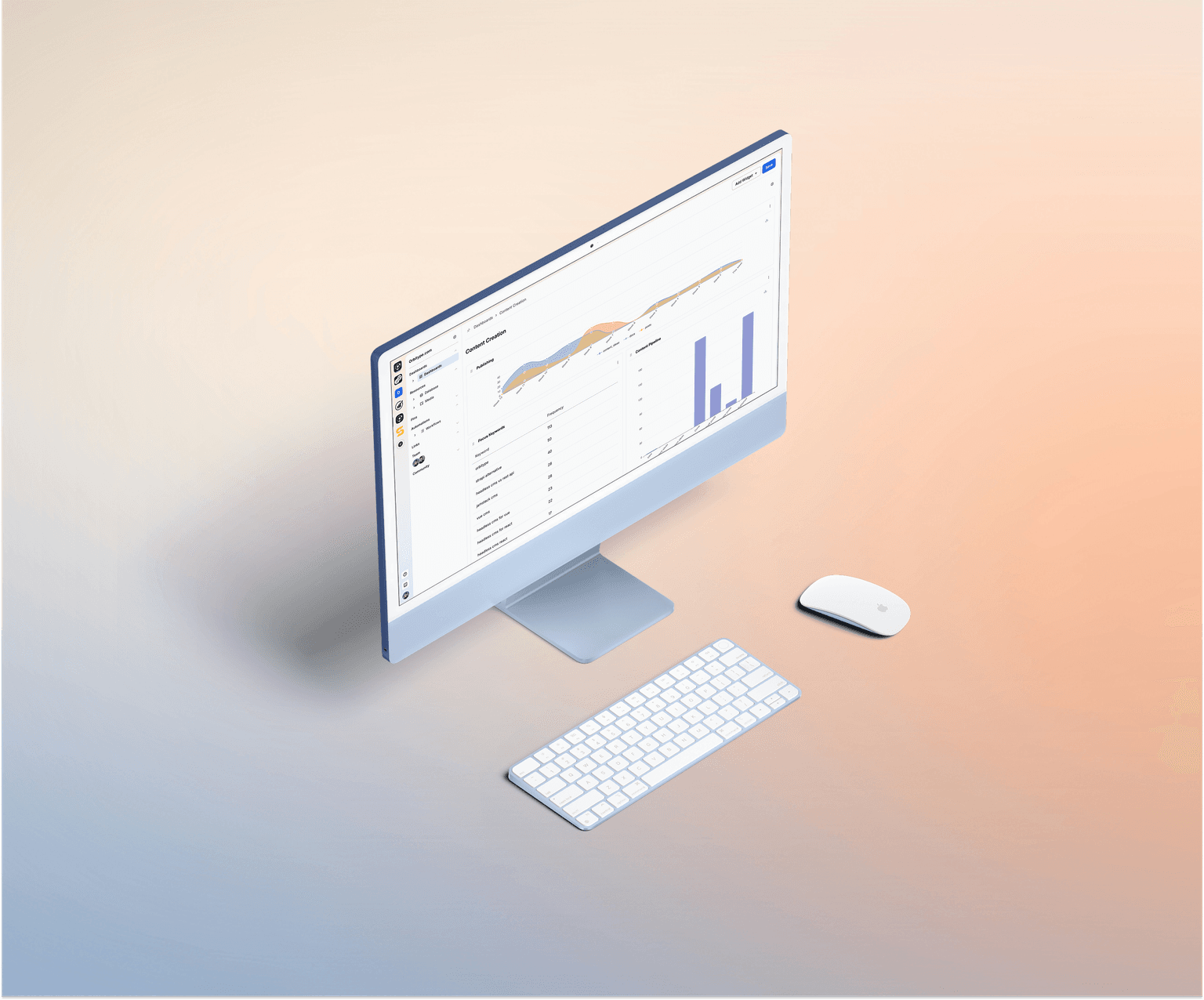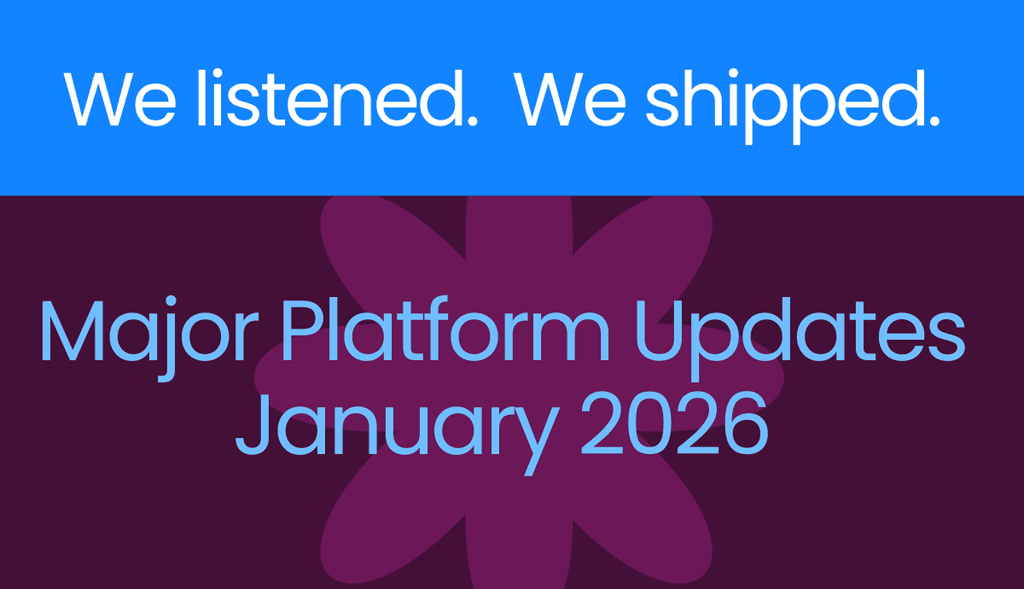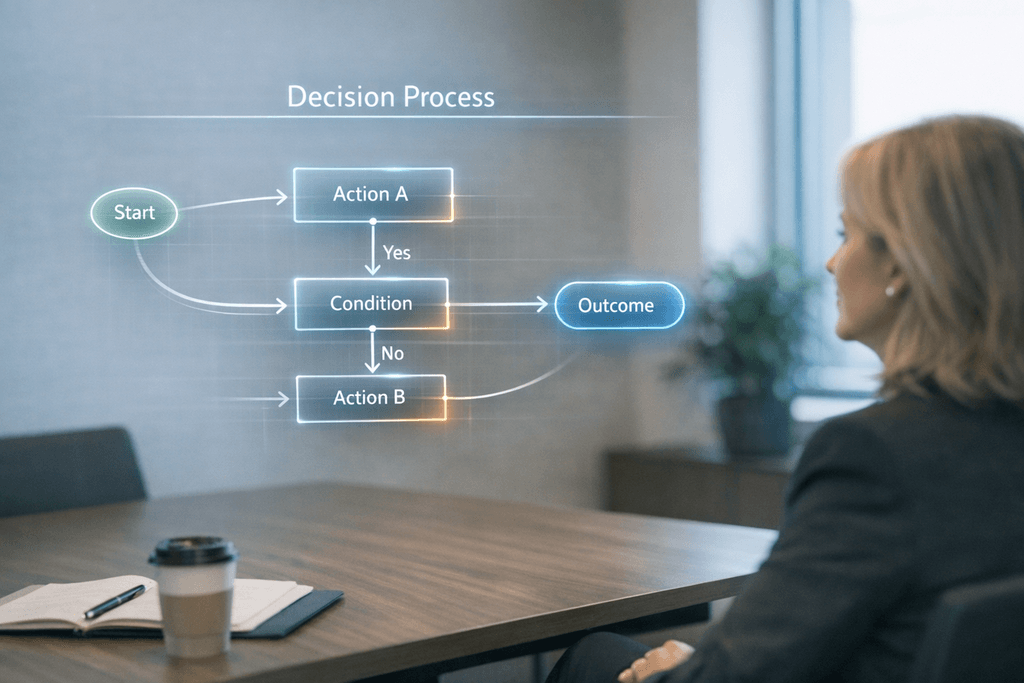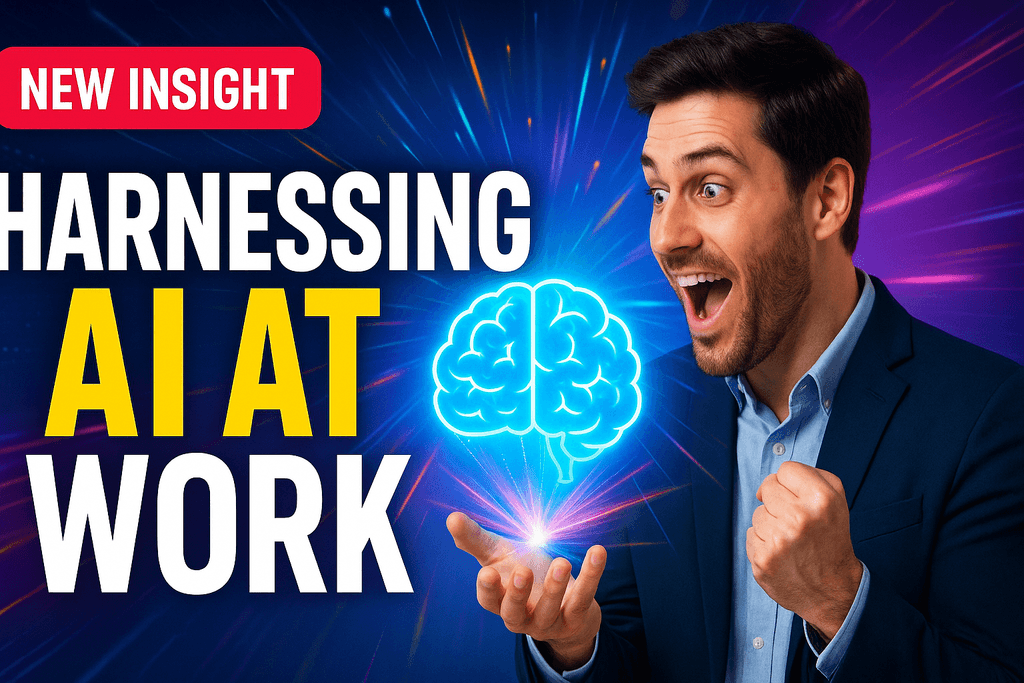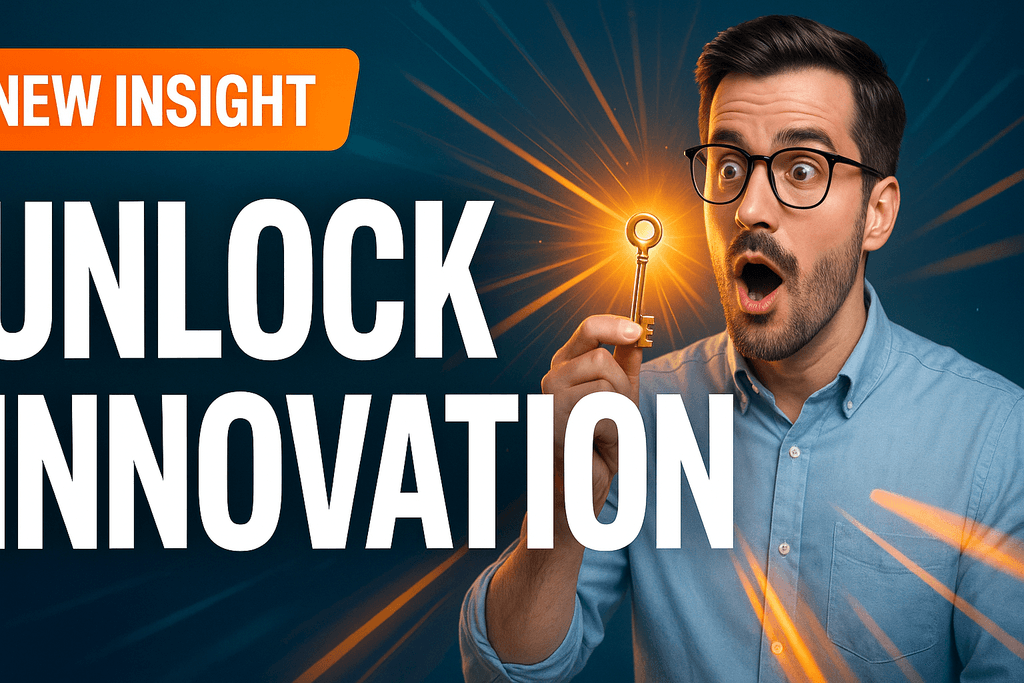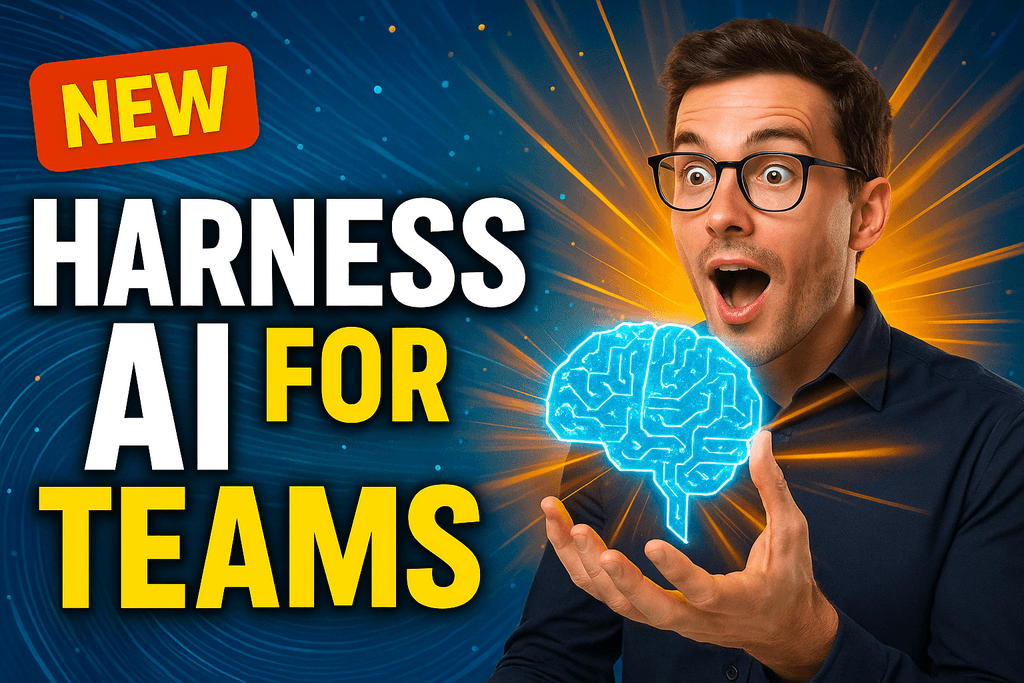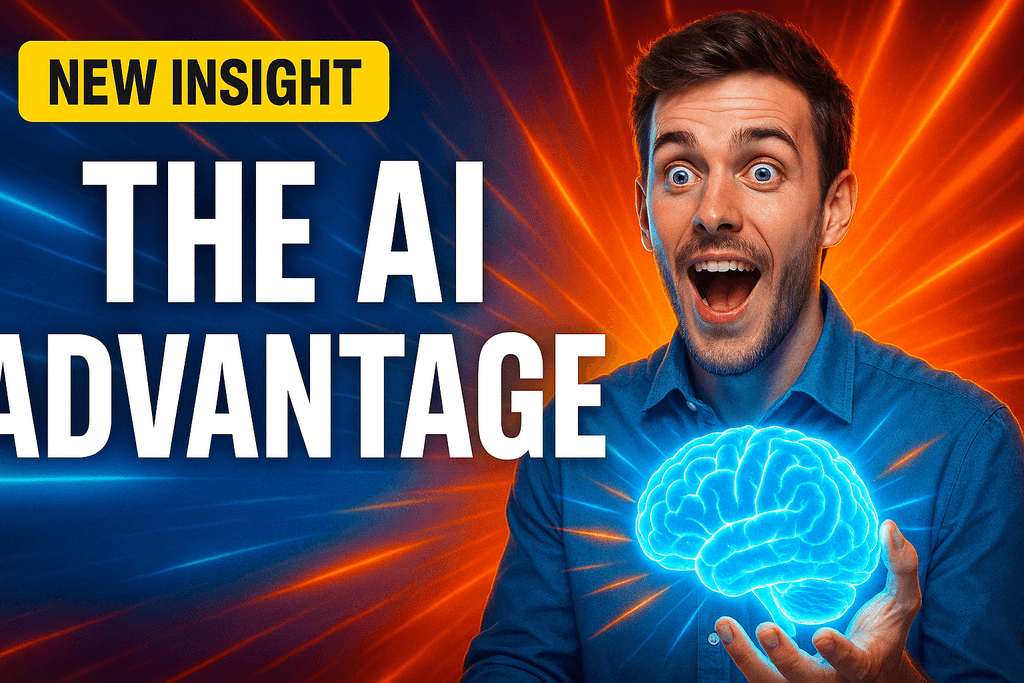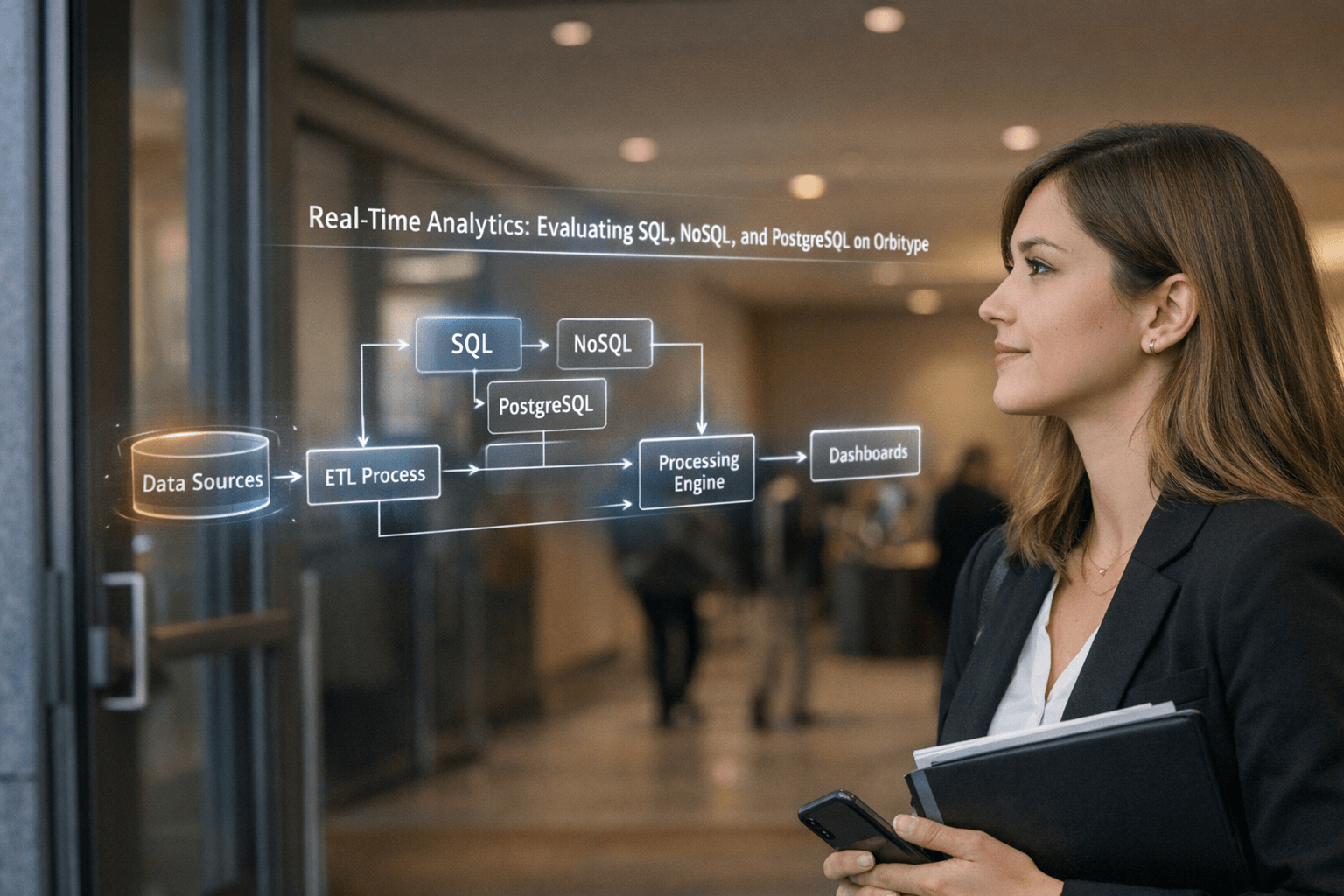
Table of Contents
Introduction
In the big data stage, companies seeking to gain a competitive advantage now need to have real-time analytics. Knowing what to do with data and being able to handle and evaluate it as it comes in can improve client experiences, accelerate decision-making, and simplify processes. Within the Orbitype ecosystem, the strong integration of PostgreSQL, NoSQL, and SQL databases powers real-time analytics capabilities. This blog will explore how these databases handle data updates and inserts, and their effectiveness in supporting real-time analytics on Orbitype. Additionally, we examine how AI agents and workflow automation amplify these capabilities, transforming raw data into actionable intelligence without manual intervention.
The Role of Real-Time Analytics
Real-time analytics offers a proactive approach to data-driven decision-making, whether it be through social media trend analysis, inventory tracking, or customer interaction monitoring. With Orbitype's Agentic Cloud OS, AI agents can continuously monitor data streams, identify patterns, and trigger automated workflows based on predefined business rules. This intelligent layer transforms traditional analytics into an autonomous system that adapts to changing conditions and delivers insights precisely when they matter most.
New to databases? Check out our beginner's guide to SQL, NoSQL, and PostgreSQL to get started with database fundamentals and understand how they power modern analytics platforms.
SQL: The Backbone of Structured Data
SQL (Structured Query Language) is the standard language for managing and manipulating relational databases. Its strong support for transactional operations and potent querying capabilities are what make people turn their heads toward it. SQL databases excel in structured data environments where relationships between data entities are clearly defined. In Orbitype, SQL databases form the foundation for reliable, consistent data operations that AI agents can leverage to perform complex analytical tasks. The combination of SQL's ACID properties with intelligent automation ensures data integrity while enabling rapid insights.
SQL Updates and Inserts on Orbitype
Orbitype leverages these SQL capabilities to ensure that data is consistently up-to-date and readily available for real-time analytics. The platform's seamless integration with SQL databases allows businesses to run complex queries and generate insights without latency issues. Additionally, Orbitype provides an SQL terminal feature, enabling users to prompt the database directly and retrieve results efficiently. AI agents can monitor these operations, automatically optimizing query performance and alerting teams when anomalies are detected. Workflow automation ensures that data updates trigger downstream processes, from dashboard refreshes to notification systems, creating a fully integrated analytics environment.
NoSQL: Flexibility and Scalability
NoSQL (Not Only SQL) databases are designed to handle unstructured or semi-structured data, making them ideal for scenarios where data is diverse and relationships are not strictly defined. They offer high scalability and flexibility, which is particularly useful in big data applications. Orbitype's Agentic Cloud OS supports NoSQL databases to manage rapidly changing data structures and high-volume data ingestion. AI agents can process this diverse data in real-time, extracting meaningful patterns and feeding them into automated workflows that respond dynamically to business needs.
NoSQL Updates and Inserts on Orbitype
Orbitype's support for NoSQL databases ensures that businesses can manage and analyze diverse data sets in real-time. This capability is particularly valuable for applications such as social media analytics, where data formats can vary widely. The platform's AI agents can automatically categorize incoming data, route it to appropriate processing pipelines, and trigger relevant workflows based on content and context. This intelligent orchestration eliminates manual data handling and ensures that insights are generated continuously, even as data structures evolve.
PostgreSQL: The Best of Both Worlds
PostgreSQL is an advanced, open-source relational database that combines the strengths of SQL with the flexibility of NoSQL. It supports traditional relational database features while also offering JSON support and other NoSQL-like capabilities. This hybrid approach makes PostgreSQL exceptionally powerful for real-time analytics scenarios where both structured and unstructured data must coexist. On Orbitype, PostgreSQL serves as the central data hub, enabling AI agents to work with diverse data types through a unified interface while maintaining the reliability and consistency that enterprises require.
PostgreSQL Updates and Inserts on Orbitype
Orbitype's integration with PostgreSQL leverages these hybrid capabilities, enabling businesses to perform real-time analytics on a wide range of data types and structures. This flexibility makes PostgreSQL a powerful tool for data-driven applications. The platform's workflow automation can trigger complex multi-step processes based on database events, while AI agents continuously analyze data patterns to optimize storage strategies and query performance. Whether handling JSONB documents or traditional relational data, Orbitype ensures seamless SQL updates, inserts, and advanced querying capabilities that adapt to your evolving business requirements.
AI Agents and Workflow Automation in Real-Time Analytics
The true power of Orbitype's real-time analytics emerges when AI agents and workflow automation work together. AI agents have access to all data and processes within the Agentic Cloud OS, enabling them to monitor database operations, detect anomalies, and initiate corrective actions automatically. For example, an AI agent can identify unusual data patterns during SQL inserts, trigger data validation workflows, and alert relevant team members while simultaneously adjusting processing parameters to maintain optimal performance. This intelligent automation transforms passive analytics into an active, self-optimizing system that continuously improves business operations.
Orbitype: Empowering Real-Time Analytics
Orbitype's platform is designed to unify and manage data from multiple sources, providing a comprehensive solution for real-time analytics. By supporting SQL, NoSQL, and PostgreSQL databases, Orbitype ensures that businesses can leverage the strengths of each database type to meet their specific needs.
Scalable Architecture: Orbitype's scalable architecture allows businesses to handle growing data volumes without compromising performance. This is crucial for real-time analytics, where timely insights depend on the rapid processing of large data sets. The Agentic Cloud OS automatically scales compute resources and optimizes data distribution across storage systems.
Unified Data Management: With Orbitype, businesses can manage and analyze data from a single interface, reducing complexity and enhancing efficiency. This unified approach simplifies data workflows and enables more effective decision-making. AI agents coordinate across different data sources, ensuring consistency and eliminating data silos.
Powerful Querying Capabilities: Orbitype's support for advanced querying capabilities ensures that businesses can extract meaningful insights from their data in real-time. Whether it is running complex SQL queries or analyzing JSON documents, Orbitype provides the tools needed for comprehensive data analysis.
SQL Terminal: One of the standout features of Orbitype is its integrated SQL terminal feature. This tool allows users to directly interact with their databases, prompting queries to retrieve and manipulate data efficiently. This provides businesses with immediate access to their data, facilitating real-time analytics and decision-making processes.
Intelligent Automation: AI agents continuously monitor data quality, optimize query execution, and automate routine maintenance tasks. Workflow automation connects analytics outputs to business processes, ensuring insights translate directly into action across your organization.
Conclusion
Real-time analytics is a game-changer for businesses seeking to harness the power of their data. By integrating SQL, NoSQL, and PostgreSQL databases, Orbitype offers a versatile and powerful platform for real-time data processing and analytics. Whether you are updating customer records, inserting new data points, or analyzing diverse data sets, Orbitype's robust features and scalable architecture empower businesses to derive actionable insights and drive success in today's data-driven world. The addition of AI agents and workflow automation elevates this capability further, creating an intelligent analytics ecosystem that operates autonomously, adapts to changing conditions, and delivers continuous value without constant human oversight. With Orbitype's Agentic Cloud OS, businesses gain not just analytics tools, but a complete AI workforce dedicated to transforming data into competitive advantage.
